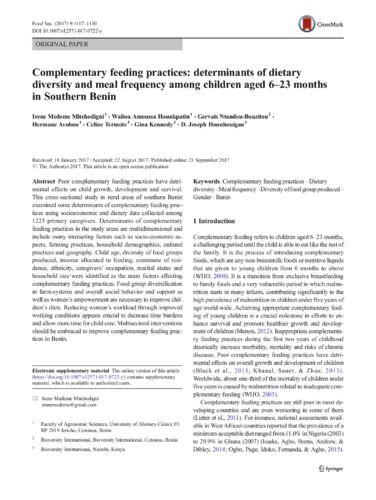Complementary feeding practices: determinants of dietary diversity and meal frequency among children aged 6–23 months in Southern Benin
Poor complementary feeding practices have detrimental effects on child growth, development and survival. This cross-sectional study in rural areas of southern Benin examined some determinants of complementary feeding practices using socioeconomic and dietary data collected among 1225 primary caregivers. Determinants of complementary feeding practices in the study areas are multidimensional and include many interacting factors such as socio-economic aspects, farming practices, household demographics, cultural practices and geography. Child age, diversity of food groups produced, income allocated to feeding, commune of residence, ethnicity, caregivers’ occupation, marital status and household size were identified as the main factors affecting complementary feeding practices. Food group diversification in farm-systems and overall social behavior and support as well as women’s empowerment are necessary to improve children’s diets. Reducing women’s workload through improved working conditions appears crucial to decrease time burdens and allow more time for child care. Multisectoral interventions should be embraced to improve complementary feeding practices in Benin.

